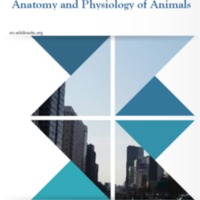Anatomy and Physiology of Animals
Dublin Core
Description
fter completing this section, you should know the:
• symbols used to represent atoms;
• names of molecules commonly found in animal cells;
• characteristics of ions and electrolytes;
• basic structure of carbohydrates with examples;
• carbohydrates can be divided into mono- di- and poly-saccharides;
• basic structure of fats or lipids with examples;
• basic structure of proteins with examples;
• function of carbohydrates, lipids and proteins in the cell and animals’ bodies;
• foods which supply carbohydrates, lipids and proteins in animal diets.
• symbols used to represent atoms;
• names of molecules commonly found in animal cells;
• characteristics of ions and electrolytes;
• basic structure of carbohydrates with examples;
• carbohydrates can be divided into mono- di- and poly-saccharides;
• basic structure of fats or lipids with examples;
• basic structure of proteins with examples;
• function of carbohydrates, lipids and proteins in the cell and animals’ bodies;
• foods which supply carbohydrates, lipids and proteins in animal diets.
Source
https://upload.wikimedia.org/wikipedia/commons/c/c7/Anatomy_and_Physiology_of_Animals.pdf
Publisher
Contributor
Rahmah Agustira
Rights
Creative Commons
Type
Files
Collection
Citation
“Anatomy and Physiology of Animals,” Open Educational Resources (OER) , accessed March 1, 2026, https://oer.uinsyahada.ac.id/items/show/261.


